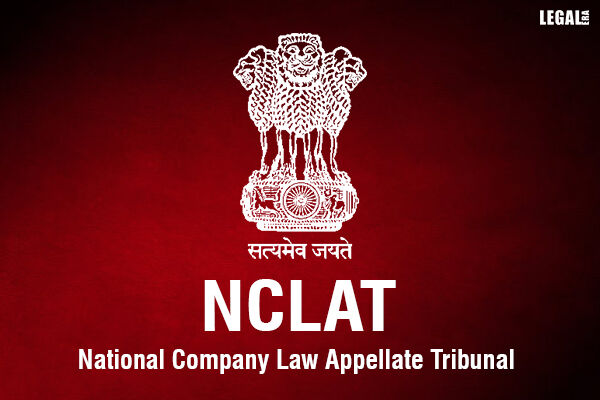
Public Auction Not Mandatory for Sale of Encumbered Assets During CIRP If Secured Creditors Consent Under Regulation 29: NCLAT
Introduction
The National Company Law Appellate Tribunal (NCLAT), New Delhi, set aside an order of the National Company Law Tribunal (NCLT), New Delhi, which had directed independent bidding for the sale of non-core assets of Arshiya Limited during its Corporate Insolvency Resolution Process (CIRP). The NCLAT held that a public auction is not mandatory for the sale of encumbered assets if secured creditors consent to the transaction under Regulation 29 of the CIRP Regulations.
Factual Background
Arshiya Limited, part of a larger group undergoing CIRP proceedings before various NCLT benches, owned non-core land parcels totaling 42.08 acres, including 39.56 acres interspersed within NCR Rail Infrastructure Limited’s railway siding and 2.52 acres forming part of a spine road providing access to assets of Arshiya Northern FTWZ Limited (ANFL) and NCR Rail.
The Committee of Creditors (CoC) approved the sale of these non-core assets under Regulation 29 of the CIRP Regulations, with 85.46% voting in favour of the Successful Resolution Applicants (SRAs) of NCR Rail and ANFL. The CoC cited value maximisation and operational synergies within the Khurja Free Trade Warehousing Zone (FTWZ) as key reasons for approving the sale.
Procedural Background
The NCLT New Delhi, while granting in-principle approval, directed the Resolution Professionals (RPs) to invite independent bids from prospective resolution applicants to ensure transparent price discovery. The RPs and CoC challenged this direction before the NCLAT, contending that the NCLT had overstepped its jurisdiction and interfered with the CoC’s commercial wisdom.
Issues
1. Whether the NCLT could direct independent bidding for the sale of non-core assets already approved by the CoC under Regulation 29 of the CIRP Regulations.
2. Whether public auction is mandatory for the sale of encumbered assets during CIRP.
3. Whether the NCLT’s order interfered with the CoC’s commercial wisdom and affected the CIRPs of other group entities.
Contentions of the Parties
For the Appellants (RPs and CoC): It was argued that the NCLT lacked jurisdiction to interfere in the CoC’s commercial decision, which was taken in accordance with Regulation 29 and backed by 85.46% CoC approval. The CoC had obtained independent valuations to ensure fair pricing. The appellants contended that public auction is not the only method of ensuring transparent price discovery.
For the Respondents (Edelweiss ARC and others): The respondents supported the NCLT’s order, arguing that inviting independent bids would ensure competitive price discovery and transparency. They claimed that the absence of open bidding limited potential value maximization for creditors.
Reasoning and Analysis
The bench of Justice Ashok Bhushan and Mr. Arun Baroka (Technical Member) held that the NCLT had exceeded its jurisdiction by interfering with the commercial decision of the CoC and by issuing directions affecting other ongoing CIRPs before different NCLT benches. The Appellate Tribunal emphasized that judicial review of the CoC’s decisions is limited to ensuring compliance with the IBC and its regulations.
The Bench stated that “The CoC’s preference for an outright transfer, at fair value, to entities that will unlock operational synergies is commercially rational, within the CoC’s exclusive domain, and thus non-justiciable.” Rejecting the insistence on a public auction, the NCLAT clarified that, “Public auction is not the sole feasible method of price discovery. The CoC’s process ensured value maximization consistent with the Code.” The Tribunal further observed that each CIRP is a separate statutory process, and the NCLT erred in making the sale of Arshiya’s assets contingent upon bidding outcomes in the CIRPs of NCR Rail and ANFL.
On the issue of secured creditor consent, the Tribunal held that since Edelweiss ARC and SREI Equipment Finance Ltd., both charge-holders and CoC members, had expressly consented, the transaction was valid under Regulation 29. The Bench also noted that Regulation 36A(1A), which allows invitations of bids for sale of assets, was introduced on May 26, 2025, after the CoC had approved the transaction in March 2025, and therefore did not apply retrospectively.
Implications
The judgment reinforces that the CoC’s commercial wisdom remains sacrosanct and immune from judicial interference, except in cases of legal or procedural violations. It clarifies that public auction is not a mandatory mechanism for asset sale under CIRP if secured creditors consent and value maximization is achieved. The ruling also underscores that each CIRP operates independently, preventing cross-interference between different proceedings of group entities.
In this case the appellant was represented by Mr. Abhijeet Sinha, Sr. Advocate with Mr. Ayush Rajani and Ms. Heena Kochar, Advocates.